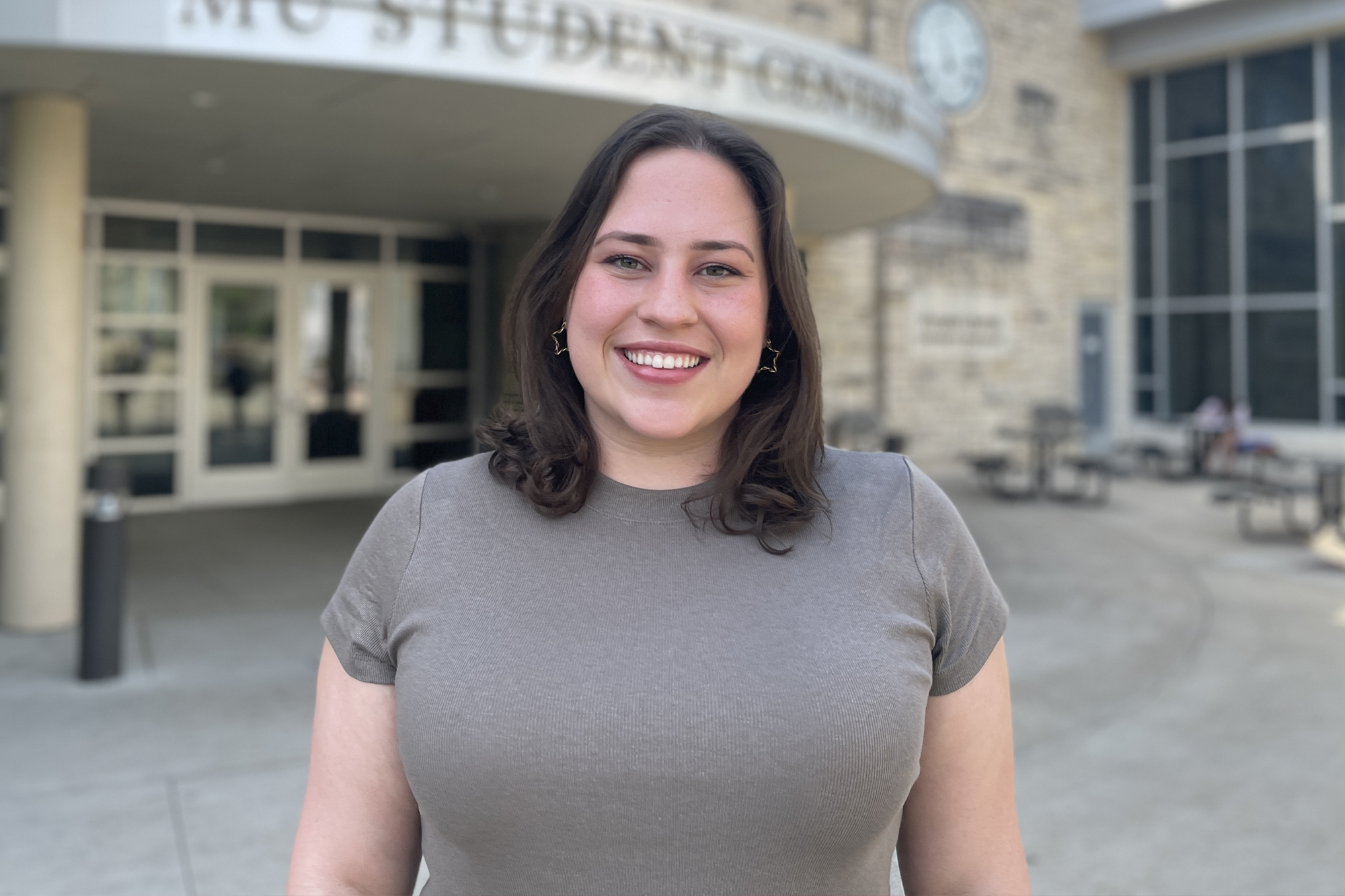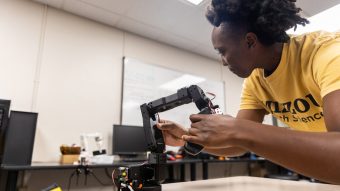
May 8, 2023
Contact: Marcus Wilkins, wilkinsm@missouri.edu
Kathryn Gluesenkamp has always been a high-achieving student, collecting awards throughout high school en route to a Stamps Scholarship that brought her to the University of Missouri.
She also collects interests, resulting in an array of hands-on research topics (amino acid composition in plants and newspaper coverage of the 1918 Spanish flu pandemic), internships (the Missouri Eliminate Tobacco Use Initiative, Elevance Health and the U.S. Department of Health and Human Services in Washington, D.C.) and student organization affiliations (Mizzou Public Health Club, Honors Ambassador Program and Presidents Council) on her résumé.
Gluesenkamp’s eclectic academic interests made MU the obvious choice. An Honors College student and Mizzou ’39 recipient from Wildwood, Missouri, she recognizes and celebrates connections across topics.
Now, as the economics and public health dual major embarks on a career path in public health policy to affect lasting change — starting with a job as a research associate at the National Opinion Research Center at the University of Chicago — she plans to draw from the reservoir of knowledge and hands-on experiences she accumulated at Mizzou.
Read on for a Q&A with Gluesenkamp about her Mizzou experience.
What first drew me to Mizzou was the Stamps Scholarship, which includes a full ride and a $16,000 stipend, but that’s not why I stayed. I’ve met the best people here, and there are so many ways to find your community. The faculty and staff at Mizzou are so caring and enthusiastic compared to the other colleges I applied to.
Why did you choose Mizzou?
For example, when I was touring schools, I met some top professors at other universities and it always felt like, “You can come here. Or not. Whatever.” It made me feel like a number. But when I received the Stamps Scholarship, one of the first MU people to reach out was Nicole Monnier, the associate dean for undergraduate studies in the College of Arts and Science. She sent a congratulations email with six exclamation points in the subject line and told me how excited she was for me! It was really encouraging.
What undergraduate research opportunities did you take advantage of at Mizzou?
I started in the lab of Ruthie Angelovici, an associate professor of biological sciences, researching how to edit plants to contain essential amino acids so that farmers can use less feed to raise cattle and hogs — essentially to help solve the problem of feeding our growing global population.
Unfortunately, COVID-19 stopped our lab work. But through the Honors College, I took a course about the 1918 Spanish influenza in Missouri and how it affected the state. There were only five people in the class, and we pivoted during the pandemic to be a comparison of COVID-19 and the 1918 influenza outbreak. I researched historical newspaper articles around Missouri for what people were saying in 1918 about the flu and mask mandates and different sentiments.
When I talk to prospective Honors College students about research, I try to impress upon them that it’s not just happening in a traditional laboratory with white coats and pipettes. There’s research in journalism, law, history, art and music. It’s happening everywhere at Mizzou.
How is your Mizzou degree helping you toward your ultimate goal?
Double majoring and studying more than one thing have been helpful because economists need to know more about the human side of public health and how it’s affected by social justice and similar areas. There’s a lot that goes into public health that requires greater economic understanding about resource allocation. I think my majors complement each other very well.
My internships during my time at Mizzou have also been invaluable. I went to Washington, D.C., and served as a health equity intern for the U.S. Department of Health and Human Services. I had never been exposed to data-driven health care or the delivery of health care on the public side. Part of my job as an intern was to teach my team about certain public health principles.
I also worked on a housing-first model to help house the homeless population in a certain city, researched what funding that model would look like and how to create sustainable health initiatives so that these individuals don’t end up homeless again.
What would you say to someone considering the University of Missouri?
The opportunities for undergraduates here far exceed other universities I’ve investigated. Of course, research happens at other schools, but because there is such an emphasis on hands-on learning here — Mizzou just does it better. The faculty and staff put you in the places you need to be. I think of Mizzou as a launching pad. If you capitalize on the opportunities, get involved and find your people, you will launch a successful career.
Meet more spring 2023 graduates


